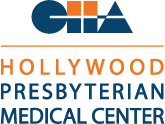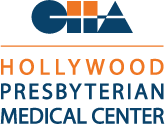|
SCEI's Director of Optometric Services, Dr. Ora Esfahani, answers questions regarding the vision benefits of eating healthy! We’ve long heard that we need to eat carrots to protect our eyes. How much truth is there to this? How does that process work?You’ve heard it because carrots are a great source of vitamin A (converted from beta-carotene once ingested), which is necessary to maintain vision and ocular health. Although vitamin A deficiency may lead to blindness in extreme cases, in most developed countries this nutrient is available in a regular diet. You don’t necessarily need to be eating carrots to have good ocular health. How many carrots would you recommend eating per week for optimal eye health?It’s always best to have a wide range of vitamins and minerals from different sources, rather than eating only one vegetable, like carrots. Maintaining a healthy, balanced diet is essential to good ocular and systemic health. There are many other vitamin A-rich foods that can be incorporated into your diet. What other vitamin A-rich foods can someone eat if they don’t like carrots?Green leafy vegetables like spinach, kale, collard greens, and microgreens are a wonderful source of vitamin A. Sweet potatoes, green peppers, salmon, and goat cheese are other foods rich in vitamin A that can supplement a healthy diet. These foods include many other nutrients that are important for eye health, including antioxidants and Omega-3s. Do you recommend taking supplements to improve eye health? If so, which ones?Most studies on supplements are only observational, so we don’t have solid evidence to say one way or another. Antioxidants and Omega-3s are important to add to a regular diet, however, this can be done by eating foods rich in these nutrients, like kale, flaxseed, chia seeds, nuts and avocados, for example. This can lower the inflammation in the body, which can reduce the symptoms of Dry Eye Disease. What we know for sure is that people who have been diagnosed with Age-Related Macular Degeneration benefit from taking Lutein and Zeaxanthin supplements, which prevent disease progression. Any vitamin-A side effects to be aware of?It’s important to maintain compliance with your doctor’s recommendations and not take more than the daily recommended amount based on your particular needs. Excess Vitamin A can lead to visual disturbances and other systemic problems which are detrimental to your health. What are your top tips to protect your eyes?Maintaining a healthy lifestyle is an important factor in keeping your eyes working properly throughout your life. A balanced and nutritious diet not only sustains your general health, but can prevent the onset of diseases like diabetes, hypertension, and elevated cholesterol, all of which can result in vision loss. Adding foods rich in antioxidants and Omega-3s can also aid in sustaining your ocular health. Exercising is an amazing way to stay healthy and reduce stress, once again combating diseases such as high blood pressure and diabetes. Avoiding smoking and excess UV exposure from the sun will reduce your risk of cataracts and macular degeneration. Just like you would apply sunscreen to the skin, wearing sunglasses will protect the eyes and skin around the eyes (which are prone to skin cancer). The best way to prevent vision problems and maintain healthy vision from the inside out is to have yearly comprehensive eye exams by your optometrist or ophthalmologist. |
 РУССКИЙ
РУССКИЙ  ENGLISH
ENGLISH 


